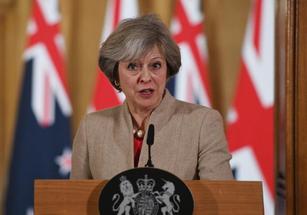|
Last month, I traveled to London as part of a Canadian Chamber delegation. The trip was a partnership with the British High Commission to strengthen business ties between our countries, as well as to learn more about how Brexit is unfolding.
We started the trip meeting with staff from the Canadian High Commission, who helped set the context for this historic negotiation: |
- Brexit is the first time in history a country has negotiated backwards from previously agreed market access positions. As an EU member, the UK wasn’t able to negotiate their own trade deals with countries such as Canada. Leaving the EU now gives them the ability to negotiate free trade deals on their own. Our subsequent meetings with government departments focused on the trade components of Brexit, but we quickly learned that it has led to a host of other policy issues. When we met with the Department for Environment, Food and Rural Affairs, for example, we learned the UK is now developing their first agriculture policy in decades. Previously agricultural policy was largely driven by Brussels, the home of the EU.
- Filling this policy vacuum has led to massive increases in government staff. It wasn’t uncommon to hear about government departments growing by hundreds. For example, we met with the Department for Exiting the EU, which now has over 700 staff to oversee the negotiations.
- Throughout our trip, Canada was often referred to as an old friend of the UK. From the UK side they made it clear maintaining our country’s relationship was a priority. The recently signed CETA agreement was often held up by not only government staff, but by UK media as a model for future trade agreements. While continuity in our country’s relationship was stressed, uncertainty remains.
- Negotiations are ongoing, with the front burner issue being a push for a “transition period.” The transition period would give the UK more time to gradually shift away from EU policies and structures. This transition would look to keep the current single market customs union in place, to provide continuity for businesses. However, a transition period hasn’t been agreed to yet.
The United Kingdom’s current minority government situation adds an additional layer of complication to negotiations. Industry groups we met also raised the important point that other government functions need to continue. As examples, the UK is looking at education reforms and a new industrial strategy was launched in late 2017. However, with Brexit taking up so much time and energy, there are concerns that some of these other priorities could slip through the cracks.
Regardless of Brexit, we will continue to have trade between our two countries. The UK is Canada’s third largest export destination and there was a clear hope expressed to build on CETA. The Canadian Chamber of Commerce and The Winnipeg Chamber of Commerce will continue to monitor EU-UK negotiations, looking to support our members’ needs to grow international trade.
|
For further information on this and other Chamber advocacy initiatives, please contact Director of Advocacy, Michael Juce, at [email protected] or 204-944-3315.
|







